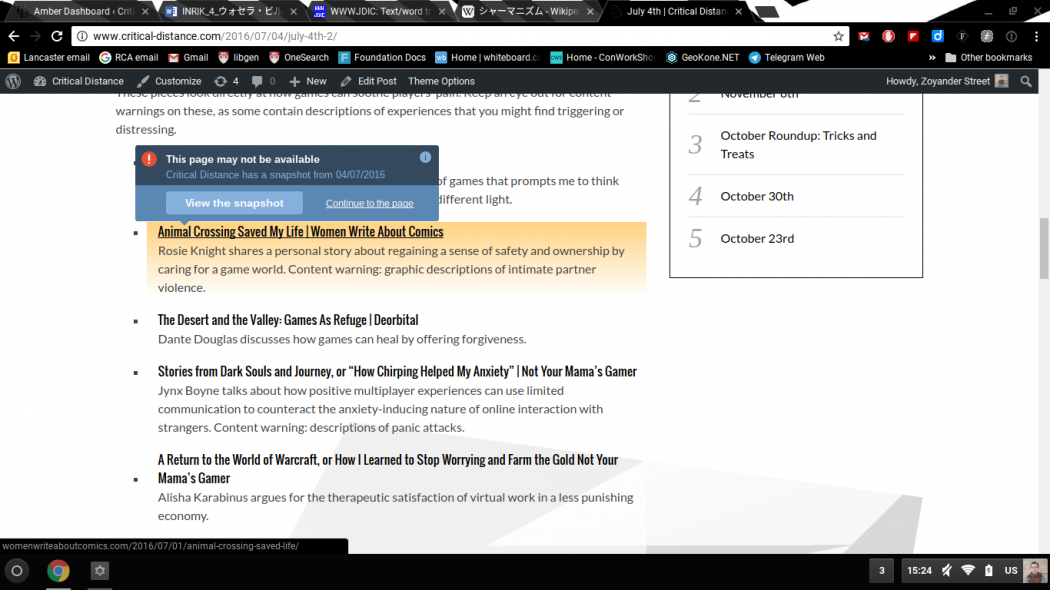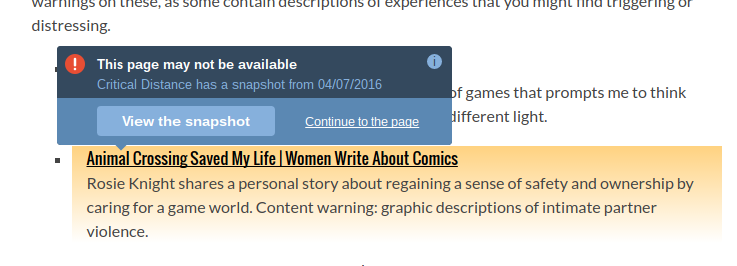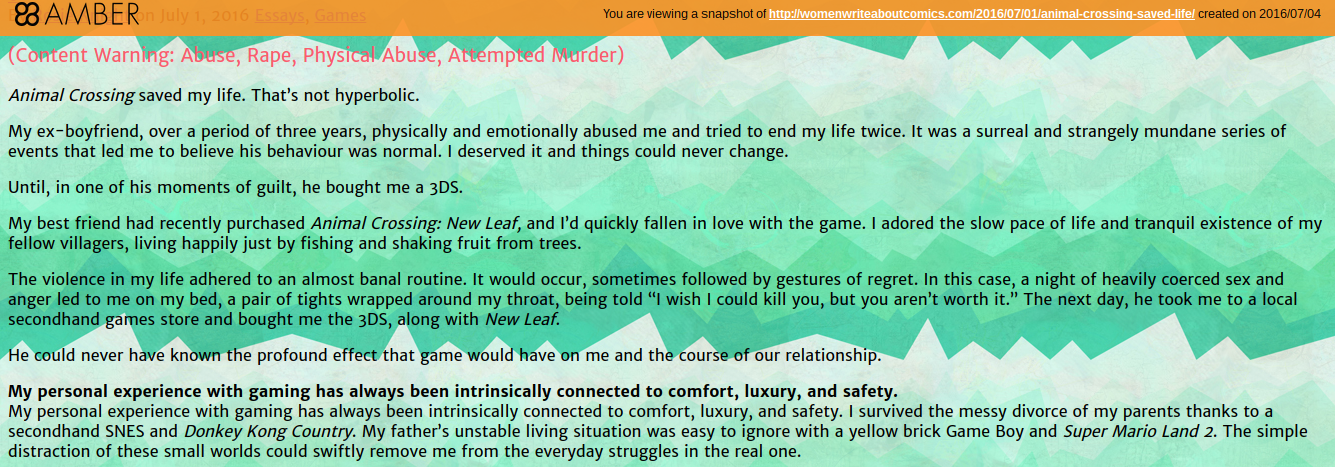At the beginning of this year we surveyed our Patreon supporters, to learn more about what you value about Critical Distance and how you would like us to grow in the future. One topic that came up was the importance of archiving games criticism for posterity.
“[H]ighlighting important writing is useless if the complete ensemble of the writing becomes inaccessible and/or unfindable, and […] this fundamental problem implies an additional and necessary role as comprehensive archiver and indexer/research-tool.”
As well as having redesigned the site to work better as a research tool, I’m pleased to announce that this year, we have made significant progress towards preserving critical writing on games.
The importance of archiving
The bulk of our site content is a large collection of seven years’ worth of weekly roundups. These roundups give an overview of what kind of writing was happening at various points in time, and constitute a curated selection of articles on other websites that could have enduring interest well into the future. However, when you go back and read our earlier content on the Archive page, the further back in time you travel, the less likely it is that a given external link will actually lead to the article being discussed. Often, you find a link that leads to a site that no longer exists, or has over time become compromised to the point that it is no longer safe to access. This is what we call “link rot”, and in some ways it means that the history of online discourse is even harder to preserve than the history of written media.
Some of these old links have been backed up on the Wayback Machine. One of the slow-burn projects I have been working on in the background is replacing dead links with Wayback links as I find them; for example, as I look into early material for answers to Agony Auncle questions. However, this is not the case for every rotten link.
Link archiving
This year we made a significant step towards fighting link rot as we move forward. In Spring of 2016 we started using a plugin created by the Berkman Institute for Internet and Society at Harvard University, that creates a “snapshot” of any article that we link to. We’re currently working on backing up all the links from our archives going back to 2009 as well, totalling over 10,000 articles in our collection. Everything we back up on our local servers with Amber also goes to the Wayback Machine. Working with these other preservation initiatives makes it much more likely that an article linked from our archives will be accessible for years to come.
If a link to an article goes down, the plugin offers you the option of viewing a snapshot instead. If the link is still working just fine, then nothing changes, and traffic to the original site is unimpeded.
Now, Amber doesn’t work with everything. Some pages are not archived because they would take up too much storage space, and others are not archived because the site creators have indicated that they do not want robots to archive their content – this includes some fairly major sources of content such as Twitter and Youtube. But we think using this plugin will have a significant impact on the legacy of games criticism, allowing tomorrow’s writers to be able to build on the work already done in our corner of the internet.




